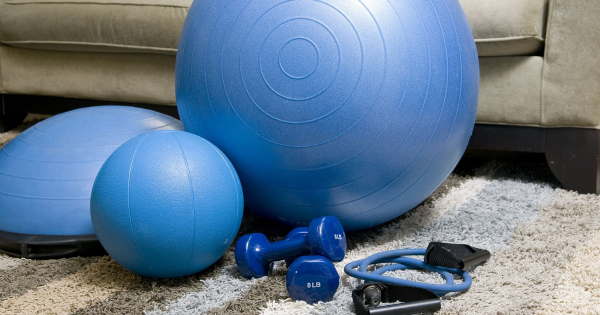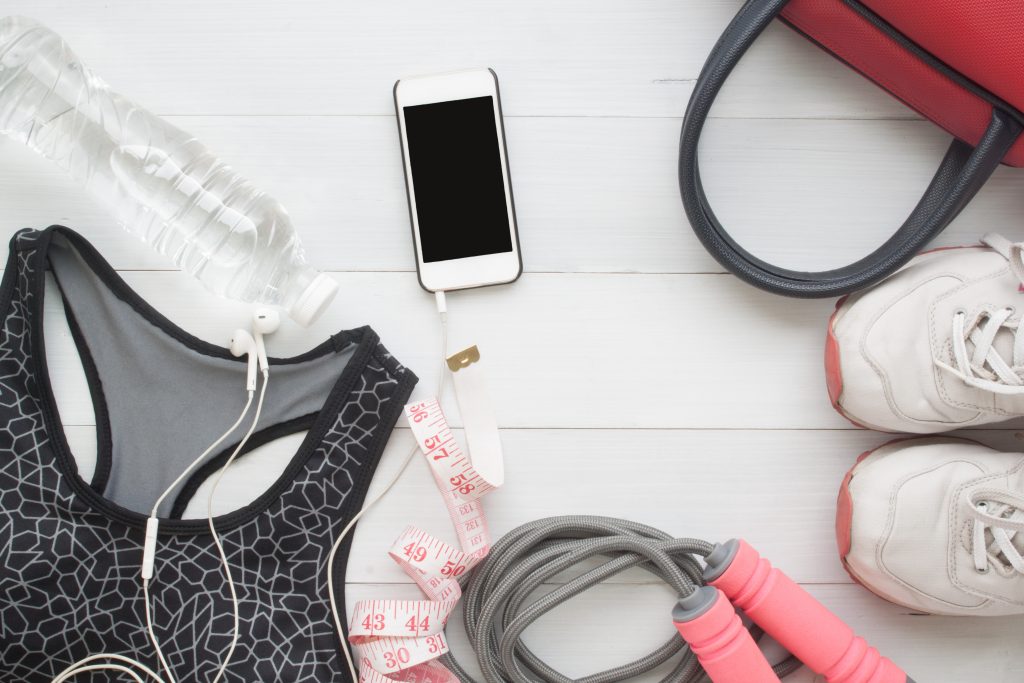
On average a 4-year-old asks about 437 questions a day. One big question a lot of adults struggle with is “How do I stay fit during the winter?” Normally the answer would be a gym membership and a little bit of determination, but COVID-19 has changed the game.
Many gyms and other fitness facilities are closed or limited in their hours and equipment. So the real question is “How do I stay healthy at home this winter?” Well, here are five winter fitness tips to keep you healthy and happy.

Winter Blues: How to Stay Fit All Season Long
Know Yourself and Be Patient
For some people, fitness is as easy as breathing and exercise is a part of their daily lives. For others, it’s something that needs to be worked on every day. The first step in getting or staying fit during winter is to know your body and what is normal for you. Each body and each person is unique so it’s important that you take things at your own pace. Don’t skip right to CrossFit if you’ve never exercised before and don’t try to overextend or push your boundaries or body too far.
Another important part of this is remembering results won’t be immediate. It’s easy to think after one or two workouts you’ll be fitter than ever but it’s just not realistic. Results will take weeks or months to show themselves so be patient and know that every workout brings you one step closer to the results you want.
Make a Plan
If you want to start a fitness routine, it all begins with a plan. First, figure out exactly what your goal is. You can’t start a journey without having a destination in mind. Try to be realistic and make sure you keep your goal on hand to remind yourself what you’re working toward. A well-rounded workout always consists of cardio, strength building, and flexibility exercises, starts with a warm-up, and ends with a cool-down.
Ideally about half an hour of exercise is enough to keep you fit. However, adults who practice more than seven hours of physical activity a week have a higher life expectancy, so maybe that’s another reason to get moving. Knowing this, plan out what exercises you’ll do and how you’ll repeat them. There are a lot of apps and websites that can help you with this. Just remember to start slow and build as you progress.

Commit and Reward Yourself
Once you have a plan, commit to it. Fitness requires focus and dedication, if you’re unwilling to commit, then you’re not going to see any change. If you struggle with keeping routines, set up rewards for yourself. They don’t have to be large rewards. Yours could be that you can’t make coffee until after you go for your morning walk or run or that you can’t eat dessert if you don’t get your half-hour of physical activity in. Any reward will work so long as you have a reason to keep going and keep moving. Just remember that even the smallest baby step, like a daily walk or evening stretch, is still a step forward.
Don’t Rely On Exercise Alone
By itself, exercise might help a little but if you’re eating fast food and doughnuts for every meal, then it might not create the changes you want to see. Controlling your diet is an important part of getting fit. This doesn’t mean not eating, but eating mindfully. Think about what you are putting into your body and try to make healthier decisions every day. Don’t force yourself to go vegan or keto overnight. Take your time and pace yourself or it will easy to backslide later on. Give yourself a cheat day to prevent cravings and keep you from undoing all your hard work. And always remember that baby steps are still steps.
Make Sure You Have Support
Fitness is a choice you make for yourself but it can be hard to stay the course alone. Encourage your spouse, friends, family, or others to get fit with you. Working together towards your fitness goals can be so much more rewarding than going it alone. Some physical activities are great ways to spend time with friends and family and get some fresh air and exercise, such as fishing which has millions of youth and adult participants. Even if they aren’t trying to get fit with you, having support still helps to make sure you have people you reach out to for uplifting words and encouragement.
Having support while you work on your fitness will also help ensure that your mental health stays in a good place. Half of people will experience mental health issues in their lives. For many, this includes depression, anxiety, and eating disorders. Healthy fitness routines can not only help you live longer and feel better but they can be good for your mental health as well. However, if you find yourself obsessing over exercise and eating you may have an eating disorder that requires counseling. As winter comes, take some time to care for yourself, and stay healthy, active, and mindful.

If you want to work on your fitness this winter, try putting these tips into practice. Before long, you’ll find yourself making exercise a habit and feeling the best you’ve ever felt.

Leave a Reply